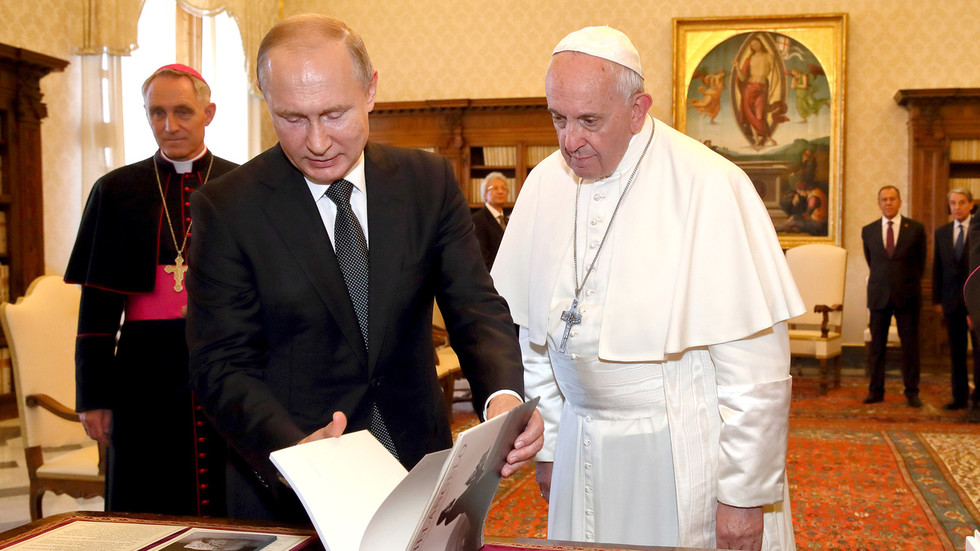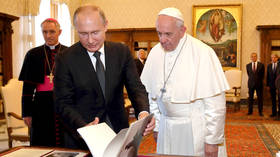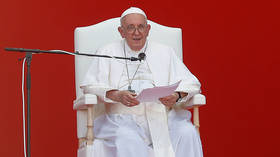
The pontiff’s praise of Russia’s cultural legacy sparked outrage in Ukraine

FILE PHOTO: Pope Francis exchanges gifts with Russian President Vladimir Putin during an audience at the Apostolic Palace in 2019 © Vatican Pool / Getty Images
The Kremlin spokesman has welcomed remarks by Pope Frances on Russia’s historical legacy, made during a speech to young Russian Catholics.
“It’s very good that the pontiff knows Russian history, which is deeply rooted,” Dmitry Peskov told journalists on Tuesday.
Speaking by video to Russian Catholics last Friday, the Pope called his audience in St. Petersburg “heirs of the great Russia… of saints, of kings, of Russia of Peter the Great and Catherine II, of the great Russian Empire, of so much culture and humanity.” He urged them to cherish that lineage.
Peskov noted that Russian history is far broader than the two monarchs named by the head of the Catholic Church, and that there are many teachers in Russian schools and universities, whose goal is to inspire students with the nation’s past.
“The fact that the pontiff sounded in unison with those efforts is very pleasing,” the official concluded.

Read more
However, the Pope’s remarks sparked anger in some Eastern European nations, notably Ukraine. Critics of Russia have claimed that the conflict in Ukraine was caused by imperialist aspirations of the modern Russian state, stemming from its historical empire.
“It is very unfortunate that Russian grand-state ideas, which are the cause of Russia’s chronic aggression, knowingly or unknowingly come from the Pope’s mouth,” a spokesman for the Ukrainian Foreign Ministry wrote on social media.
The Vatican denied that the criticism was valid, pointing out that the Pope was highlighting Russia’s “great culture and humanity” rather than historical expansion.
Moscow has rejected this framing of the conflict. It has insisted that it had to use force in response to Kiev’s continued persecution of its ethnic Russian population, the empowerment of extremist nationalists in Ukraine, and the continued build-up of NATO forces on Russia’s borders.




